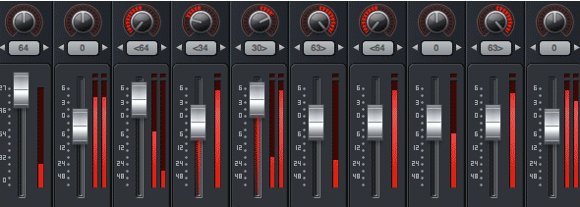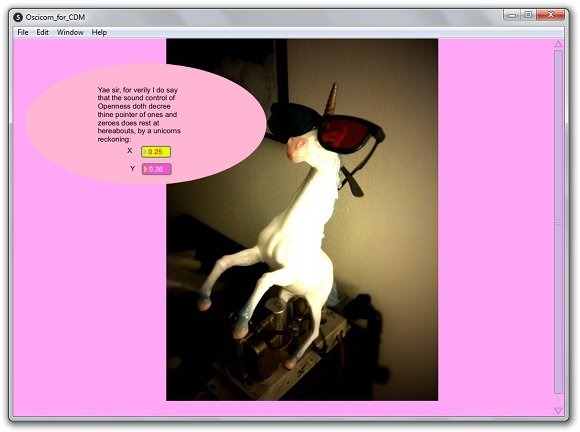
And there were three – three major production apps now have OSC control. Once considered the domain of “DIY” apps or developers, OpenSoundControl is beginning to look like a viable option for open, standardized controls of music apps. Open-source Mac/Linux DAW Ardour has fully-documented OSC support as we saw in the spring, and this week tracker Renoise added OSC in a public beta. They join environments like Max and Pd, and a wide range of live visual software.
Add to that list DP. MOTU’s Digital Performer is the first mainstream, commercial DAW heavy-hitter to get OSC support, in its 7.2 update. 7.2 is generally a nice update, including theme support for its UI, but I’ll assume that if you’re a DP user, you’ve already found out about it. What you may have missed is the custom OSC control features added to DP’s default control surface support.
Select Setup > Control Surface Setup, and you can add an OSC controller. Right now, that’s most likely to mean some sort of iOS iPhone or iPad app, though this suggests to me the incentive is growing for someone – anyone – to finish OSC support for traditional hardware with faders, knobs, and buttons, too.
Once you’ve got your networking setup configured, you’re granted extensive control of just about everything you can do with DP tracks. That includes, to paraphrase from the MOTU OSC Programming Guide:
- Global properties: transport, click, punch, and even frame formats.
- Actions: Cut, copy, undo, scrub, zoom, scroll, jump to markers, selection tools – all the things you normally do with the mouse and keyboard shortcuts.
- Track properties: Volume, pan, mute, solo, of course, but also group settings, monitoring, and other more advanced options.
- Sends and inserts.
You can find all the details by navigating to DP’s online control surface help.
Not absolutely everything is covered, but it’s fairly extensive and copiously documented. Aside from controlling DP from a custom iPad control surface, I’m curious if this helps people to have another outlet for making “macros” for control.
We haven’t seen yet what MOTU’s own plans for its OSC support may be, but I’ll let you know. I think even having DP and Ardour with similar support in DAWs is already progress for the traction of the protocol. Saying “I’m first” or “I’m exclusive” isn’t, of course, terribly meaningful when you’re talking standards. Now, OSC support in music software has some company.
Of course, with opportunity comes responsibility. There’s an even greater need for coordination between OSC developers, and a broader effort to help the protocol mature.
